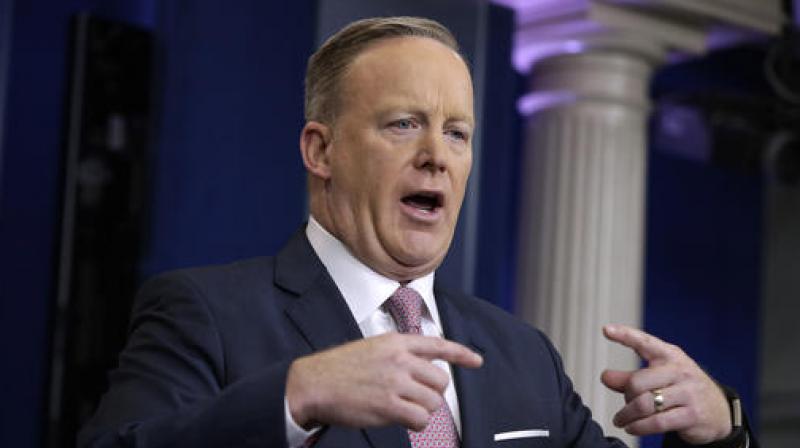Fact check: White House spokesman gets election facts wrong

Washington: President Donald Trump's press secretary on Tuesday mischaracterised the election results and the findings of a study that purported to show significant voting in the past by non-citizens.
Statements by Sean Spicer and how they compare with the facts:
Spicer: "He won overwhelmingly with 306 electoral votes, the most since any Republican since Reagan."
The facts: Not the most since Reagan, and not an overwhelming victory by history's standards. You only have to go back to George H.W. Bush to find a bigger Republican Electoral College winner. Bush captured 426 electoral votes in 1988, or 79 percent, well ahead of Trump with 306 electoral votes, or 57 percent.
Trump actually ended up with 304 electoral votes because of the defection of two electors in December, but he had won enough states to get to 306.
The broader context: Trump's victory ranked 46th out of the 58 elections since the nation's founding, far from the "landslide" that Trump himself has often claimed.
Reagan achieved true blowouts, winning 489 electoral votes (91 percent) in 1980 and 525 (97.6 percent) in 1984.
Spicer: "I think there's been studies. There's one that came out of Pew in 2008 that showed 14 percent of people who voted were non-citizens."
The facts: First, Spicer mixes up studies. Second, he misrepresents the conclusions.
The Pew study, released in 2012 and based in part on 2008 results, was about outdated or otherwise inaccurate voter registration records, not about votes illicitly cast by non-citizens.
David Becker, an author of that study, said his report never found fraud. Moreover, he tweeted Tuesday that voting integrity in 2016 was "better in this election than ever before."
The issue of non-citizen voting actually was examined in a 2014 study by two Old Dominion University professors who wrote about their findings in The Washington Post.
They did not conclude, as Spicer said, that more than 14 percent of voters were non-citizens. They said that an estimated 14 percent or more of non-citizens had registered to vote a much smaller universe of people. Moreover, only "some of these non-citizens voted," they said.
Their "best guess" was that 6.4 percent of non-citizens voted in 2008 and 2.2 percent in 2010.
Even those modest numbers were sharply disputed by other academics because of the study's methodology. But even if the study were right, it would not support Spicer's assertion. Nor does it support Trump's repeated statements that illicit voting by people in the country illegally cost him a majority of the popular vote in November.
The broader context: No evidence of significant voter fraud surfaced from the 2016 election, despite plenty of digging.

